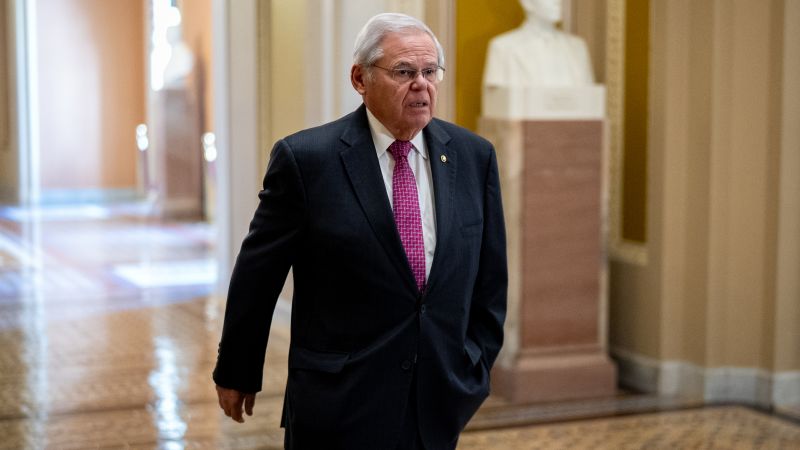Sen. Bob Menendez will be allowed to argue at his federal corruption trial that he believed he was acting for the public good when helping Egypt and Qatar, while prosecutors will present evidence alleging that he and his wife took bribes in a scheme involving the foreign governments to fund their lavish lifestyle. Judge Sidney Stein set the parameters for the trial at a hearing, outlining how he wants the trial to proceed, scheduled to begin with jury selection next Monday. Menendez is one of several current and former members of Congress facing federal charges, and the trial will test how jurors weigh evidence against elected officials accused of a crime.
Menendez will face a jury alongside two New Jersey businessmen who are co-defendants, while his wife, Nadine, also charged, will be tried separately. The businessmen Wael Hana and Fred Daibes have pleaded not guilty, while another co-defendant, Jose Uribe, has pleaded guilty to charges related to the bribery scheme and cooperated with prosecutors. The trial is expected to last several weeks as prosecutors aim to prove that the defendants engaged in a corruption scheme to help the Egyptian and Qatari governments in exchange for bribes.
Prosecutors will be allowed to show evidence that Menendez and his wife used the money from the scheme to live lavishly, though the judge ruled against tactics like cross-examining FBI agents on whether the senator was warned about being used as an agent for a foreign government. Menendez can argue that what he did was good for the public, but cannot use how other lawmakers operate as justification for his actions not being criminal. The judge also has yet to decide on whether Menendez can call a psychiatrist to testify about the senator’s mental state and personal history leading to his behavior.
Before the trial begins, the judge must address several issues, including what questions defense attorneys and prosecutors will be allowed to ask prospective New York jurors. The defense has proposed questions related to biases about people from New Jersey and opinions on the Department of Justice pursuing charges against elected officials. Prosecutors want to bar certain testimony from a psychiatrist and argue that Menendez is seeking sympathy from the jurors. The judge also emphasized that the trial should not devolve into political commentary or infighting between attorneys.
Overall, the trial will be a test of how jurors weigh evidence against an elected official accused of corruption. The prosecution aims to prove that Menendez engaged in a corruption scheme to benefit foreign governments in exchange for bribes while the defense will argue that his actions were in the public’s interest. As the trial proceeds, the judge will continue to address legal issues and determine what evidence and testimony will be allowed in court. The outcome of the trial will have implications for how corruption cases involving elected officials are handled in the future.


